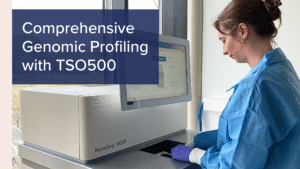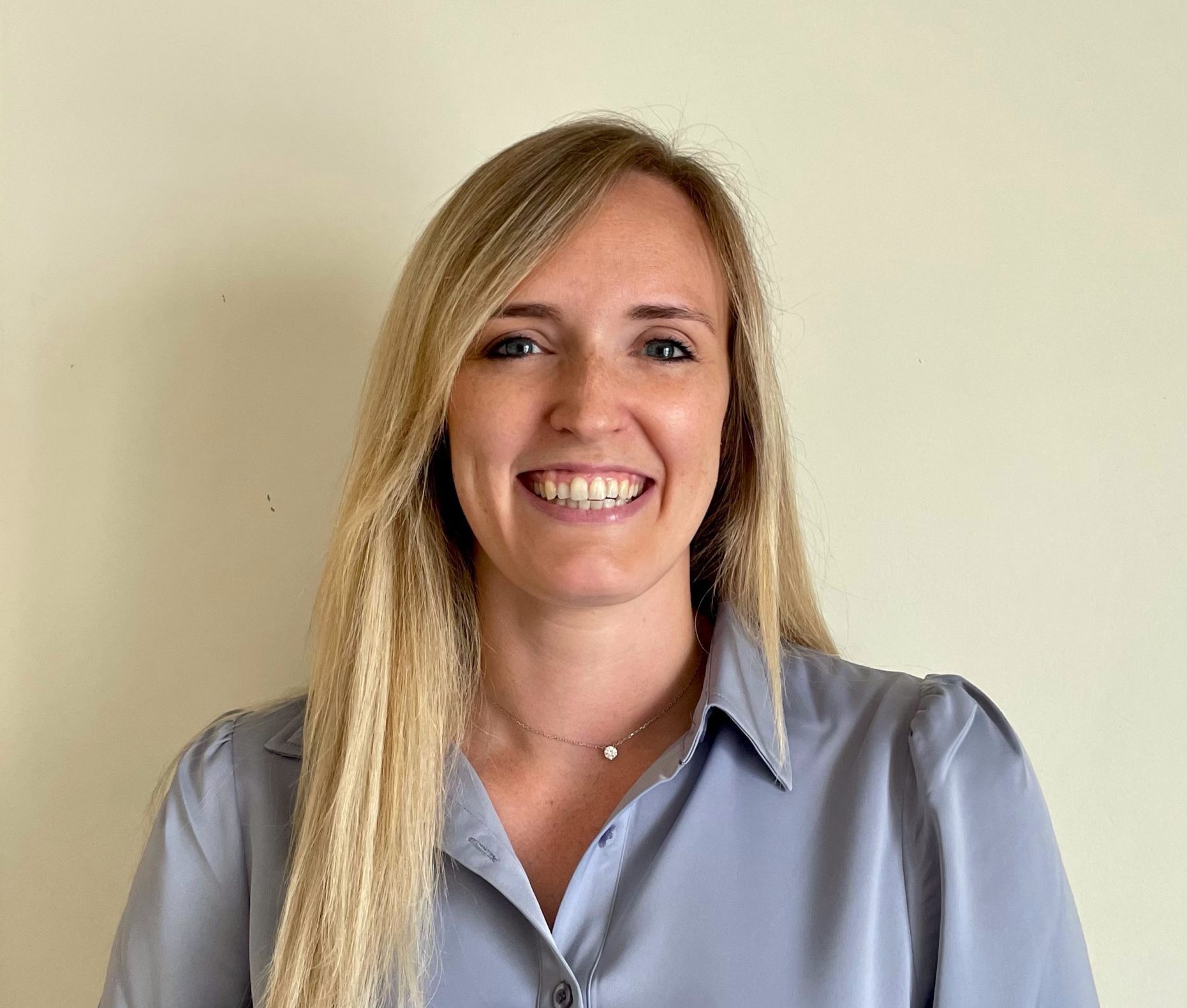May 15, 2023

Precise and reliable genomic profiling is key for identifying new therapeutic targets, making treatment decisions, and monitoring disease progression. Uncovering critical genetic information about tumor biology, predictive biomarkers, and immune responses can aid in the selection of appropriate patients and optimize study outcomes.
The TruSight Oncology 500 (TSO500) panel is a cutting-edge next-generation sequencing (NGS) tool that enables comprehensive genomic profiling across a broad range of cancer types.
It covers 523 cancer-related genes from DNA and 55 from RNA, allowing for the detection of single nucleotide variants (SNVs), insertions/deletions (indels), copy number variations (CNVs), and gene fusions.1
With to possibility to analyze both tissue and liquid biopsy samples, TSO500 can provide a holistic view of the tumor’s genetic landscape, aiding in the identification of therapeutic targets.
With TSO500, labs have the flexibility to choose between manual or automated workflows. However, automated workflows achieve high-quality results with higher throughput, enhancing lab efficiency and saving labor costs. TSO500 assays improve biomarker discovery and provide insightful details using only a minimal amount of sample, thus saving precious samples.
Additionally, TSO500 offers automation options, enabling labs to process samples with minimal hands-on time, making it a valuable tool in high-throughput environments. This automation feature allows for processing up to 192 samples per run, significantly reducing costs and turnaround time for large-scale studies.
How can the TSO500 panel improve the development of cancer therapies?
The development of immunotherapies requires rigorous assessment of immuno-oncology biomarkers, including TMB and MSI, as well as other genetic markers such as RNA fusions, single nucleotide variant (SNV), insertions/deletions (indels), and copy number variation, all of which can be determined via TSO500 2,3.
MSI status has traditionally been evaluated via PCR and immunohistochemistry techniques. While such methods provide qualitative insight into MSI-stable or MSI-high status, the TSO500 assay evaluates 130 specific homopolymer MSI marker sites, producing a quantitative score for MSI status1. Additionally, determining consistent TMB values at low mutation levels can pose challenges when using smaller panels.
TSO500 overcomes this obstacle by seamlessly integrating genomic content with advanced algorithms, resulting in precise TMB estimates highly concordant with whole-exome studies (WES).
Its dual capability to assess both DNA and RNA in a single assay makes it an incredibly valuable technology when looking into uncover actionable mutations.
Consolidating multiple biomarker assays into one comprehensive NGS assay requires less sample, provides a quicker turnaround time, and significantly increases the chances of finding positive biomarkers1.
Improve TSO500 testing with CellCarta’s support
When conducting large-scale genomic studies, it is important to have access to required facilities and a reliable team with expertise in the latest technologies. Our global footprint and logistics expertise ensure that your samples reach our experts and undergo appropriate processing in a timely fashion. Large-scale genomic studies can become quite costly, which is why we offer the NovaSeq platform in conjunction with TSO500 to allow for analysis of 16-192 samples per run, thus providing scalable throughput for dynamic study sizes4.
Regulatory and Compliance Information
The TruSight Oncology Comprehensive panel (TSOComp) is approved by regulatory authorities both in Europe and United States, meaning it was validated under stringent regulatory standards for clinical diagnostics.
This regulatory approval ensures that TSOComp meets the necessary criteria for accuracy, reliability, and clinical utility in these locations.
Its compliance with global regulatory standards is crucial for its integration into clinical workflows, allowing the genomic data generated by TSOComp to inform critical treatment decisions with confidence.
At CellCarta, we offer our broad range of services and biomarker expertise to provide solutions for your study needs and to support our partners in propelling precision medicine. Contact our team to speak to an expert about your clinical trials.
About the author:

Sara Diels (PhD) is an assay development scientist at the Genomics Services unit within CellCarta. She led the implementation of the TSO500 High-Throughput and ctDNA assay at the Antwerp site. Her background is in molecular biology, and she has experience in the field of disease genetics where different -omics technologies are used to examine multifactorial inheritance. At CellCarta, Sara has expanded her expertise with the development and validation of PCR- and NGS-based assays.
References
- TruSight Oncology 500 Assay | For pan-cancer biomarkers in DNA and RNA. https://www.illumina.com/products/by-type/clinical-research-products/trusight-oncology-500.html.
- Pestinger, V. et al. Use of an Integrated Pan-Cancer Oncology Enrichment Next-Generation Sequencing Assay to Measure Tumour Mutational Burden and Detect Clinically Actionable Variants. Mol Diagn Ther 24, 339–349 (2020).
- Wei, B. et al. Evaluation of the TruSight Oncology 500 Assay for Routine Clinical Testing of Tumor Mutational Burden and Clinical Utility for Predicting Response to Pembrolizumab. Journal of Molecular Diagnostics 24, 600–608 (2022).
- NovaSeq 6000 System. https://www.illumina.com/systems/sequencing-platforms/novaseq.html.
You might also be interested by
Web News
Biofidelity and CellCarta partner to deploy Aspyre® Lung in global clinical trials
January 9, 2025
Genomics
More infoCellTalk Blog
How can HLA typing drive better immunotherapy development and selection?
December 6, 2023
Genomics
More infoWebcasts & Webinars
Predicting Immune Checkpoint Inhibitor Response Directly from Tumor RNA-Sequencing Data
June 6, 2023
Genomics
More infoWebcasts & Webinars
Applications of Digital PCR in Clinical Research
June 1, 2022
Genomics
More info